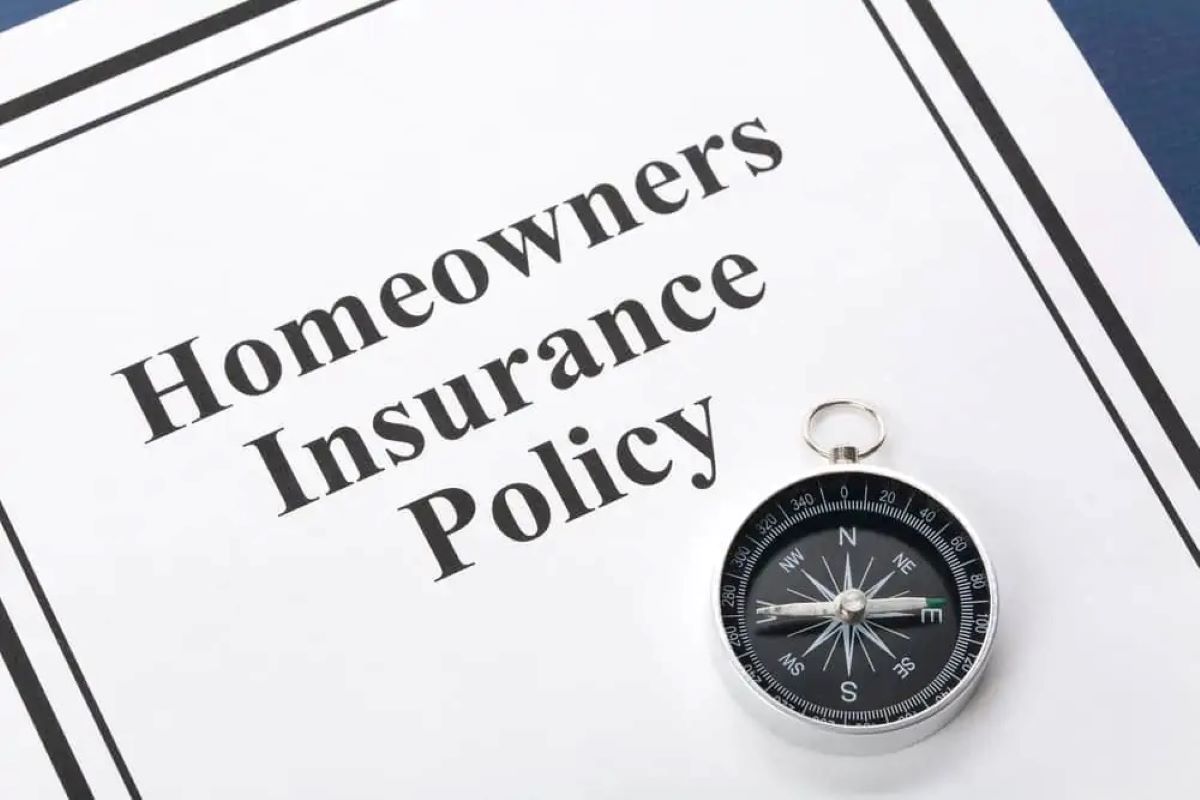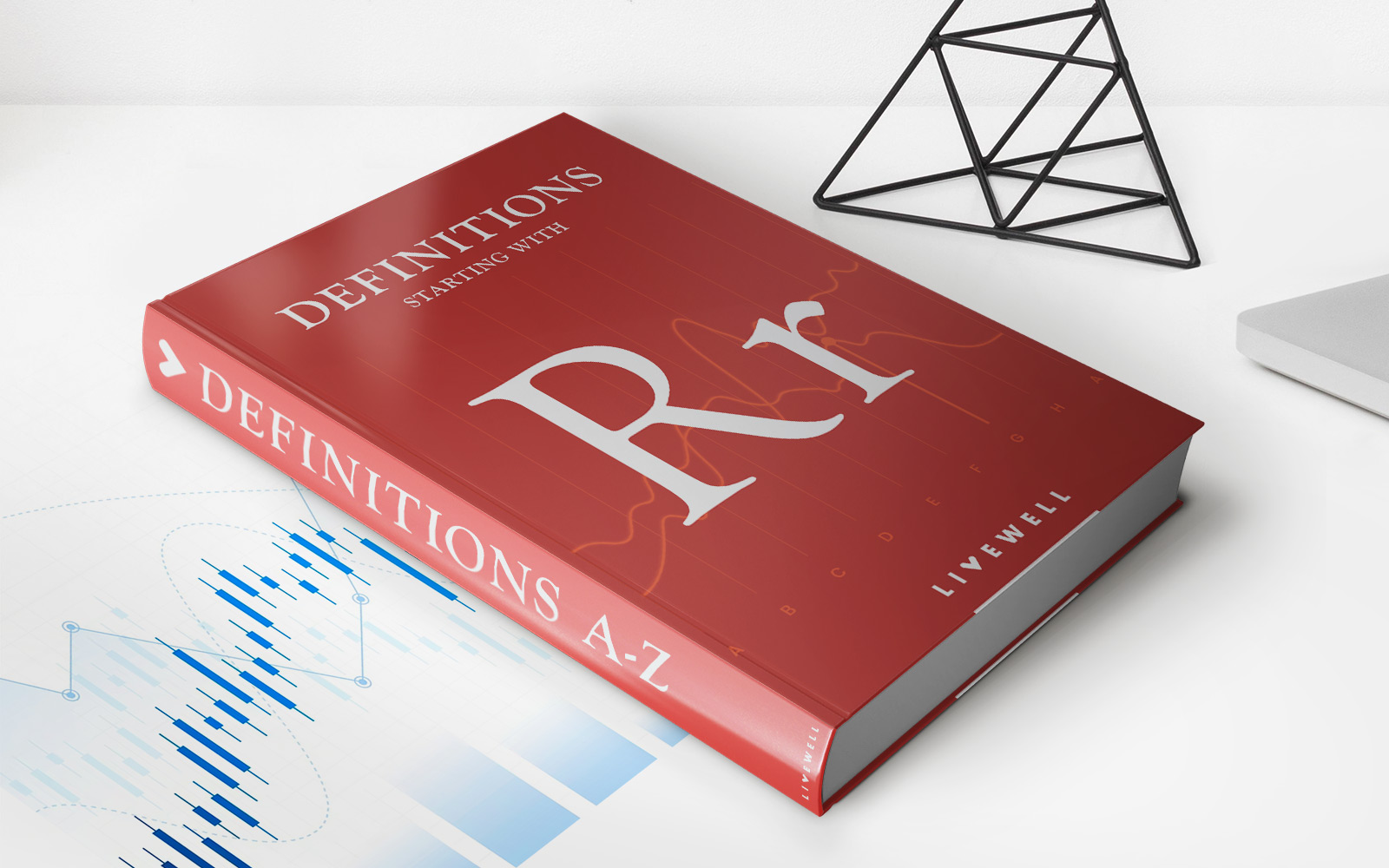Home>Finance>What Happens If You Don’t Have Enough Insurance To Cover An Accident?


Finance
What Happens If You Don’t Have Enough Insurance To Cover An Accident?
Modified: February 21, 2024
Don't let your finances suffer if you're underinsured for an accident. Find out the consequences and learn how to protect yourself with adequate insurance coverage.
(Many of the links in this article redirect to a specific reviewed product. Your purchase of these products through affiliate links helps to generate commission for LiveWell, at no extra cost. Learn more)
Table of Contents
Introduction
Insurance is a crucial aspect of our lives, providing us with financial protection and peace of mind. Whether it’s auto, health, or home insurance, having adequate coverage is essential to safeguard against unexpected events. However, what happens if you don’t have enough insurance to cover an accident? This is a question that many people fail to consider until it’s too late.
In this article, we will explore the consequences of insufficient insurance coverage and the potential financial and legal implications that can arise. Understanding these risks is vital in ensuring you have the appropriate level of coverage to protect yourself and your assets.
Before we delve into the potential consequences, it’s important to have a basic understanding of insurance coverage. Insurance policies typically have different types of coverage, such as liability, collision, and comprehensive. Each type provides different levels of protection, and the amount of coverage you have can vary depending on your specific policy.
Liability coverage is typically required by law and protects you if you are found responsible for injuring someone or damaging their property. It helps cover the costs of medical bills, property repairs, and legal fees associated with the accident. Collision coverage, on the other hand, helps cover the costs of repairing or replacing your own vehicle if it’s damaged in an accident. Comprehensive coverage offers protection against non-collision events, such as theft, vandalism, or natural disasters.
Now that we have a basic understanding of insurance coverage, let’s explore the potential consequences of not having enough coverage to adequately protect yourself in the event of an accident.
Understanding Insurance Coverage
In order to grasp the implications of not having enough insurance coverage, it’s crucial to have a thorough understanding of what insurance coverage entails. Insurance is a contract between the policyholder and the insurance company, where the company agrees to provide financial protection in exchange for regular premium payments.
Insurance coverage is typically designed to protect against specific risks and liabilities. For example, auto insurance offers coverage for accidents and damage to vehicles, while health insurance provides coverage for medical expenses. Home insurance protects against property damage, theft, and liability claims. Understanding the different types of coverage available to you is essential in ensuring you are adequately protected.
The amount of coverage you choose or are required to have can vary depending on various factors such as state laws, loan requirements, and personal preferences. Insurance policies often have policy limits, which are the maximum amounts the insurer will pay out in the event of a claim. It’s essential to review and understand your policy limits to ensure they align with your needs and potential risks.
It’s crucial to note that insurance coverage is not a one-size-fits-all solution. Each individual’s insurance needs may differ based on their personal circumstances, such as their assets, income, and tolerance for risk. Determining the appropriate level of coverage requires careful consideration and evaluation of your specific needs and potential risks.
When assessing your insurance needs, it’s also essential to consider potential gaps in coverage. Some policies may exclude certain types of damages or have limitations on coverage amounts. Identifying these gaps and considering additional coverage options, such as umbrella insurance, can provide an extra layer of protection.
Furthermore, it’s important to regularly review and update your insurance coverage as your circumstances change. Life events such as marriage, the birth of a child, or purchasing a new home may necessitate adjustments to your coverage to ensure you have adequate protection.
By thoroughly understanding insurance coverage and assessing your specific needs, you can make informed decisions about the amount and types of coverage you require. This knowledge is crucial in protecting yourself financially and avoiding the potential consequences of insufficient insurance coverage.
Consequences of Insufficient Insurance
Not having enough insurance coverage can have significant consequences, both financially and legally. When an accident or unexpected event occurs, and your insurance coverage falls short, you may find yourself facing the following consequences:
- Financial Loss: One of the most immediate consequences of insufficient insurance coverage is the financial burden it places on you. Without adequate coverage, you may be responsible for paying for damages, medical expenses, or property repairs out of your own pocket. This can quickly deplete your savings and put a strain on your finances.
- Unpaid Medical Bills: Inadequate healthcare insurance coverage can lead to unpaid medical bills. This can result in hospitals and healthcare providers pursuing legal action to recover their costs. In addition to the financial stress, this can also negatively impact your credit score and future ability to obtain loans or credit.
- Property Damage: Insufficient coverage for property damage can leave you responsible for repairs or replacement costs. Whether it’s a car accident, a fire at your home, or a natural disaster, not having enough insurance can leave you struggling to cover the expenses associated with repairing or replacing your property.
- Legal Consequences: In some cases, not having enough insurance coverage can result in legal consequences. If you are found liable for causing an accident or injuring someone, inadequate liability coverage can leave you exposed to lawsuits and potentially significant financial judgments against you. This can have long-term consequences for your financial stability and overall quality of life.
- Loss of Assets: Without sufficient insurance coverage, you risk losing your assets to cover the costs of an accident or lawsuit. This can include losing your car, home, or other valuable possessions. Losing your assets can have a devastating impact on your financial stability and future.
It is crucial to remember that insurance is meant to provide protection and minimize the financial impact of unexpected events. Having sufficient insurance coverage ensures that you are not left vulnerable to these consequences. It is always better to have more coverage than you think you need in order to protect yourself and your assets.
Financial Responsibility
When it comes to insurance coverage, understanding your financial responsibility is key. Insurance is designed to mitigate the financial impact of unexpected events, but it does not absolve you of all financial obligations. Even with insurance, you may still have some level of financial responsibility depending on your coverage limits and policy terms. Here are some key factors to consider:
- Deductibles: Most insurance policies have deductibles, which are the amounts you are responsible for paying out-of-pocket before the insurance coverage kicks in. Deductibles can vary depending on the policy and the type of coverage. For example, in auto insurance, you may have a deductible for collision or comprehensive coverage. It’s important to understand your deductibles and be prepared to pay them in the event of a claim.
- Co-payments/Co-insurance: In health insurance, you may have co-payments or co-insurance requirements. Co-payments are fixed amounts you are responsible for paying at the time of medical services, such as a doctor visit or prescription medication. Co-insurance refers to a percentage of the total cost of medical services that you are responsible for paying after meeting your deductible. Understanding these financial obligations is crucial for managing medical expenses and budgeting accordingly.
- Policy Limits: Insurance policies often have coverage limits, which determine the maximum amount the insurance company will pay out for a claim. If your damages or expenses exceed the policy limits, you may be responsible for paying the remaining costs out-of-pocket. It’s important to review and understand your policy limits to ensure they adequately protect you in various scenarios.
- Exclusions and Limitations: Insurance policies may also have exclusions and limitations stated in the terms and conditions. These are situations or events that the insurance company does not cover or has specific limitations on. It’s crucial to be aware of these exclusions and limitations as they can impact your financial responsibility in the event of a claim.
- Uninsured/Underinsured Motorist Coverage: In auto insurance, uninsured/underinsured motorist coverage protects you if you are involved in an accident with an at-fault driver who either does not have insurance or does not have enough coverage to compensate for your damages. This coverage can help fill the gap and reduce your financial responsibility in such situations.
Understanding your financial responsibility is essential for managing your budget and making informed decisions about the level of coverage you need. By carefully reviewing your policy terms, deductibles, co-payments, and coverage limits, you can ensure that you are adequately prepared to handle any financial obligations that may arise in the event of an accident or unexpected event.
Out-of-Pocket Expenses
When you don’t have enough insurance to cover an accident or unexpected event, you may find yourself facing significant out-of-pocket expenses. These expenses are costs that you have to pay directly, without the financial protection of insurance coverage. Understanding potential out-of-pocket expenses can help you better prepare for these situations:
- Medical Expenses: In the case of health insurance, inadequate coverage can lead to substantial out-of-pocket expenses for medical treatments, surgeries, hospital stays, prescription medications, and other healthcare services. These costs can quickly add up and place a strain on your finances if you don’t have sufficient coverage or your policy has high deductibles or co-payments.
- Vehicle Repairs: Insufficient auto insurance coverage can leave you to bear the brunt of vehicle repair costs after an accident. Depending on the extent of the damage, repairing or replacing a vehicle can be an expensive undertaking. Without adequate coverage, you may have to pay for these repairs out of your own pocket.
- Property Damage: Whether it’s damage to your home, rental property, or personal belongings, not having enough insurance coverage can leave you responsible for out-of-pocket expenses related to repairs or replacements. This can be particularly burdensome, especially in cases of natural disasters, fires, or theft.
- Legal Fees: If you are involved in a legal dispute or lawsuit, insufficient liability coverage can result in significant out-of-pocket expenses for legal fees and court costs. Whether you are the plaintiff or defendant, legal proceedings can quickly become costly and add to your financial responsibilities.
- Loss of Income: In some cases, an accident or unexpected event may result in temporary or permanent loss of income. Without adequate disability insurance or income replacement coverage, you may have to rely on your savings or face financial hardship if you are unable to work and generate income.
It’s essential to note that out-of-pocket expenses can vary greatly depending on the circumstances, the type of insurance, and the specific coverage you have. Reviewing your insurance policies, understanding the potential out-of-pocket costs, and ensuring you have sufficient coverage can help protect you from these unexpected financial burdens.
By having adequate insurance coverage, you can mitigate the risk of significant out-of-pocket expenses and provide yourself with greater financial security and peace of mind.
Legal Consequences
Insufficient insurance coverage can result in legal consequences, especially if you are involved in an accident or found liable for causing damage or injury. It’s important to understand the potential legal ramifications of not having enough insurance to protect yourself adequately:
- Lawsuits: If you cause an accident or are found responsible for injuring someone, and your liability insurance is insufficient to cover the damages, you may face lawsuits from the affected parties. The injured parties can seek compensation for medical expenses, property damage, lost wages, and other damages resulting from the incident. Being sued can lead to substantial legal fees, court costs, and potential financial judgments against you.
- Judgments and Financial Responsibility: In the event of a lawsuit, if the awarded damages exceed your insurance policy limits, you may be personally responsible for paying the remaining amount. This can result in significant financial strain and potential asset loss if you are unable to meet these obligations. Legal judgments can impact your financial stability, credit score, and future financial opportunities.
- Licensing and Registration Consequences: In some situations, not having enough auto insurance coverage can result in legal consequences related to your driving privileges. Depending on local laws and regulations, your driver’s license and vehicle registration may be suspended or revoked if you are caught driving without the required minimum insurance coverage. This can hinder your ability to drive legally and may require additional costs and procedures to reinstate your driving privileges.
- Increased Insurance Premiums: Having insufficient coverage and being involved in accidents or legal disputes can result in increased insurance premiums in the future. Insurance companies often take into account a person’s claims history and level of risk when determining premium rates. If you have a history of inadequate coverage or legal issues, you may be considered a higher risk and face higher premiums or difficulties in obtaining insurance coverage in the future.
- Criminal Liabilities: In some cases, not having enough insurance coverage can lead to criminal charges. For example, driving without insurance or committing insurance fraud can result in legal consequences such as fines, license suspension or revocation, and even imprisonment. It’s crucial to comply with local laws and regulations regarding insurance coverage to avoid these serious legal consequences.
It is vital to prioritize having sufficient insurance coverage to protect yourself from potential legal consequences. Adequate insurance coverage can provide you with the financial protection and legal support necessary to navigate unforeseen circumstances and legal disputes.
If you find yourself facing legal issues or consequences due to insufficient insurance coverage, it is advisable to consult with a qualified attorney who can guide and represent you throughout the legal process.
Seeking Legal Help
Dealing with legal consequences can be overwhelming and complex, especially when it pertains to insurance coverage. If you find yourself in a situation where you don’t have enough insurance to cover an accident or are facing legal disputes, seeking legal help is essential to protect your rights and interests. Here are some reasons why seeking legal assistance is important:
- Legal Expertise: Attorneys specializing in insurance law possess extensive knowledge and expertise in navigating insurance claims, coverage disputes, and legal proceedings. They can help you understand your rights, advise you on the best course of action, and advocate for your interests.
- Maximizing Compensation: In cases where you are entitled to compensation for injuries, damages, or losses, an attorney can help ensure you receive the maximum amount of compensation possible. They can negotiate with insurance companies, gather evidence, and build a strong case to support your claim.
- Legal Protection and Representation: Having legal representation can protect you from being taken advantage of by insurance companies or the opposing party. Attorneys can handle communication with insurance adjusters, defend your rights, and provide a strong legal defense if you are faced with a lawsuit or legal dispute.
- Navigating Complex Legal Processes: Legal proceedings can be complex and challenging to navigate, especially if you are dealing with insurance companies, multiple parties, or intricate laws and regulations. An attorney can guide you through the legal process, ensuring that you meet all necessary deadlines, follow proper procedures, and understand your legal options.
- Peace of Mind: Engaging a lawyer can provide you with peace of mind during what can be a stressful and overwhelming situation. Knowing that you have a legal professional on your side, working to protect your interests, can alleviate some of the burdens and allow you to focus on your recovery or rebuilding process.
When seeking legal help, it’s important to choose an attorney who specializes in insurance law or has experience handling similar cases. They should have a track record of success and a strong understanding of the specific laws and regulations that apply to your situation.
Remember, time is of the essence when dealing with legal matters, so don’t hesitate to reach out to an attorney as soon as possible to ensure that your rights are protected and that you receive the guidance and support you need.
Conclusion
Having adequate insurance coverage is crucial for protecting yourself and your assets from unexpected events and accidents. Not having enough insurance coverage can lead to significant financial and legal consequences that can have long-lasting effects on your financial stability and future. Understanding your insurance coverage, policy limits, and potential out-of-pocket expenses is essential in ensuring you are adequately protected.
Insufficient insurance coverage can result in financial burdens, where you may be responsible for paying out-of-pocket for damages, medical expenses, or property repairs. Additionally, legal consequences such as lawsuits, judgments, and even criminal liabilities can arise if you are involved in an accident or found liable for causing damage or injury.
Seeking legal help in situations where insurance coverage falls short is important for protecting your rights and interests. Insurance law specialists can provide guidance, navigate complex legal processes, and advocate for your best interests in negotiations or court proceedings. Their expertise can help maximize your compensation and provide you with peace of mind during what can be a challenging and overwhelming time.
In conclusion, it’s essential to prioritize having sufficient insurance coverage and regularly reviewing your policies to ensure they align with your needs and potential risks. Taking the time to assess your insurance needs, understanding your financial responsibility, and seeking legal help when necessary can provide you with the confidence and protection you need in the face of unexpected events. By being proactive and well-prepared, you can mitigate the potential consequences of not having enough insurance coverage and safeguard your financial well-being.














